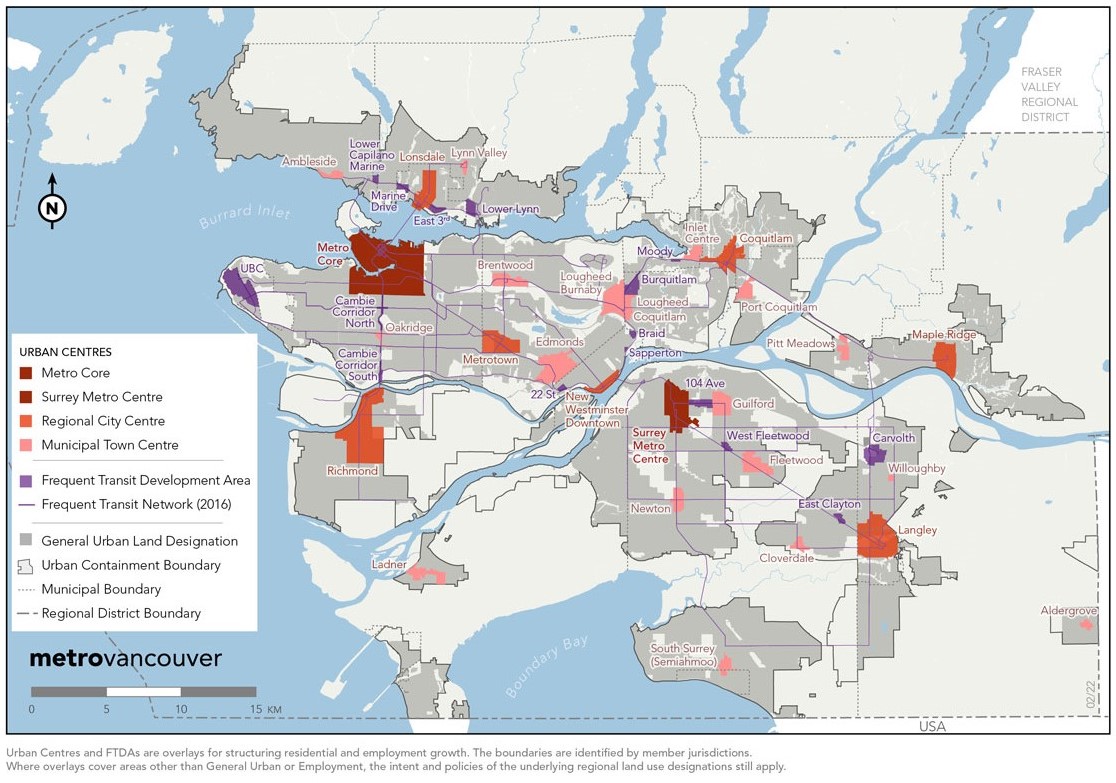As this region continues to grow, it is vital that growth is directed to the right places to optimize land use, help protect important lands, and make sure infrastructure and services can be provided efficiently. Focusing growth in locations with good transit access supports these objectives and helps create complete communities.
Complete communities
Complete communities are walkable, transit-friendly places where people of all ages and stages of life can live, work, play, and access daily needs close to home. They include a mix of housing, jobs, services, and amenities like schools, parks, health care, and cultural spaces.
Ensuring communities have access to a range of services nearby helps reduce air pollution and greenhouse gas emissions by shortening travel distances and supporting sustainable transportation options like walking and cycling. Complete communities also promote health, inclusion, and accessibility — especially in urban centres where most new development is focused.
Metro Vancouver’s role
Metro 2050, the Regional Growth Strategy, identifies key areas to focus on new growth:
Urban Centres (UCs)
A network of 26 transit-oriented hubs across the region, each with a mix of housing, jobs, and amenities. These centres, varying in size and character, include:
- Metro Core (downtown Vancouver) and Surrey Metro Core, the largest centres
- Regional City Centres, which are major activity hubs connected by rapid transit like SeaBus, Rapid Bus, and SkyTrain
- Municipal Town Centres, which reflect unique local contexts and emerging growth areas
Frequent Transit Development Areas (FTDAs) and Major Transit Growth Corridors (MTGCs)
Areas that are planned for growth, offering services and amenities for local communities while supporting investments into long-term transit.
Metro 2050 map (Major transit corridors and major transit network

Metro 2050 growth targets
Metro 2050 sets housing and job growth targets for Urban Centres (UCs) and other key growth areas to support complete communities and sustainable regional development. Metro Vancouver is currently reviewing and updating these targets to ensure they are ambitious yet achievable. This work will reflect the latest Census data, updated regional projections, recent provincial housing legislation, and local planning priorities.
Urban Centre profiles
Urban Centre profiles to track progress toward housing and job targets and help monitor changes in population, housing, employment, land use, transportation, green space, and tree canopy cover.
Work is currently underway to update profiles with the latest population, housing, and employment projections.
Child care inventory
Having sufficient affordable child care is essential for a healthy, diverse, and equitable region. Metro Vancouver updates its inventory of child care spaces every four years using Census data.